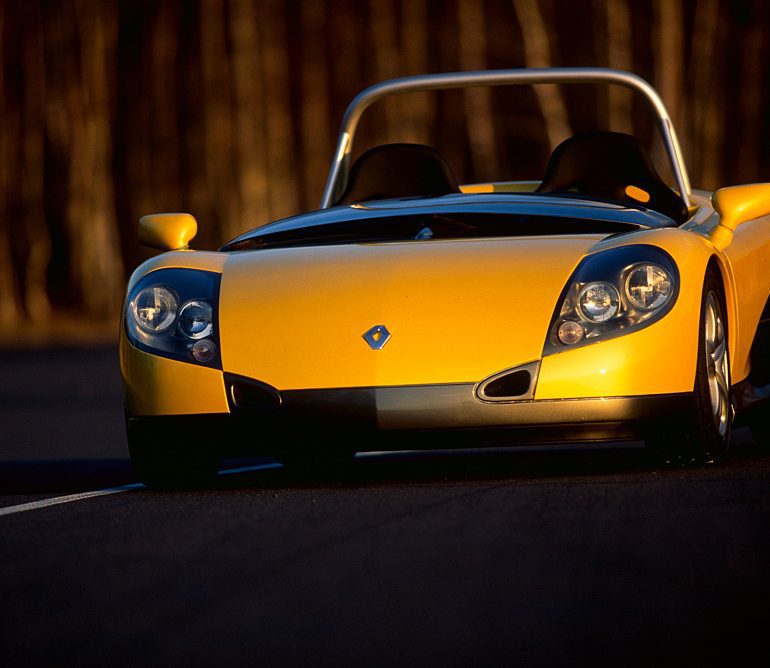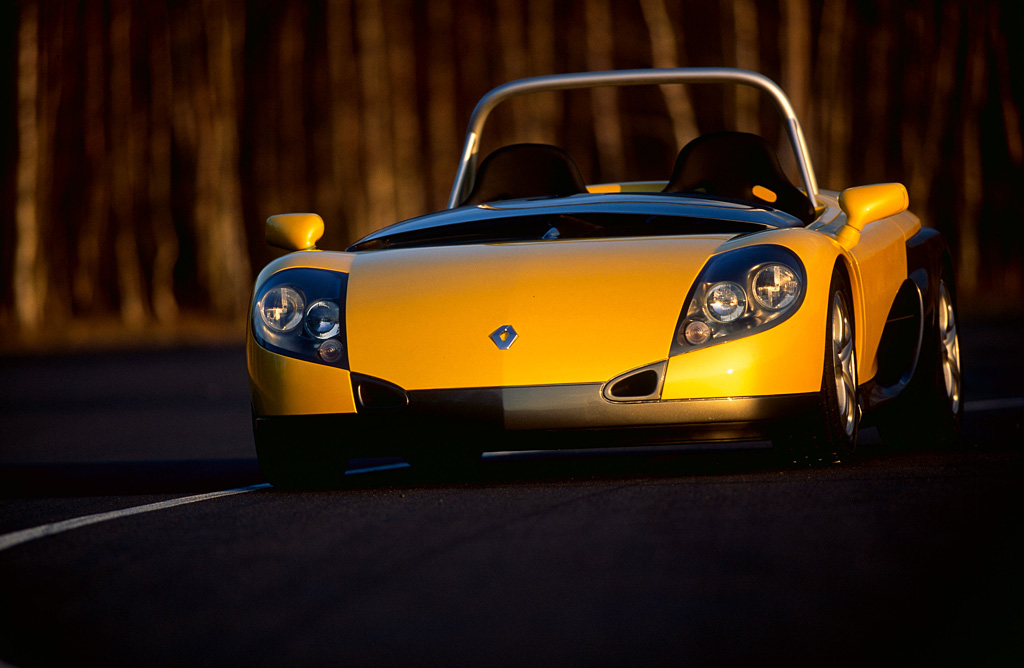1998 Renault Sport Spider
The Spider was not a typical vehicle in the Renault range. A no-concessions sports car emphasizing thrills rather than comfort. Designed and built by enthusiasts for enthusiasts…
Just another motor show prototype?
In the 1990s, the Williams-Renault dominated Formula 1 racing. Their success brought Renault considerable publicity and the firm decided to develop its range of sports vehicles.
The idea for the Spider took form with the bold concept car unveiled by Renault at the 1990 Paris Motor Show. The Laguna Roadster was an open car with no roof or windscreen, featuring minimalist design lines and gullwing doors. Nothing to do with the future sedan of the same name. It was only in 1993 that Renault finally brought an ultra-sporty production model to market.
Light, nimble and powerful
Following extensive studies, Renault produced a working prototype of the Laguna Roadster. The original idea was to develop a fun high-performance sports model dedicated to track sports. However, the quality of the prototype was such that Renault management decided to take the idea further. It initiated the idea of volume production with the assistance of Nogaro Technologies, specialists in the design of motor sports vehicles.
Presented under the Renault Sport label, it continued the tradition of the Alpine range and its no-concessions design. The finely muscled body and taut, fluid lines expressed elegance and power. And its performance was as impressive as its looks: rear transversely mounted engine, light aluminium chassis (cutting its weight by 930 kg). In the purest tradition of roadsters, the Spider was a car of minimalist design: the bucket seats and roll cage brought motor sports to mind. It had no power steering, ABS or heating. The Spider was designed to deliver thrills in acceleration, braking and ride without a motor sports budget. An ode to the pleasure of driving on the open road…
Helmet compulsory
The eminently sporty Spider was unveiled at the 1995 Geneva Motor Show. Continuing the long and fruitful cooperation that had produced such vehicles as the A110, Renault commissioned the Alpine plant in Dieppe to make the car.
The Spider received a spontaneous, enthusiastic welcome from both the public and the critics. It was a car that brought the spirit of motorsports to French roads. City drivers (and co-drivers) were required to wear helmets since there was no windscreen. A version with a windscreen came out one year later.
A total 1,726 Spider vehicles were produced, of which 80 models of the Spider Trophy cars, an international version reserved for competition.
Story by Renault S.A.
In Detail
| submitted by | Richard Owen |
| type | Series Production Car |
| built at | France |
| production | 1726 |





